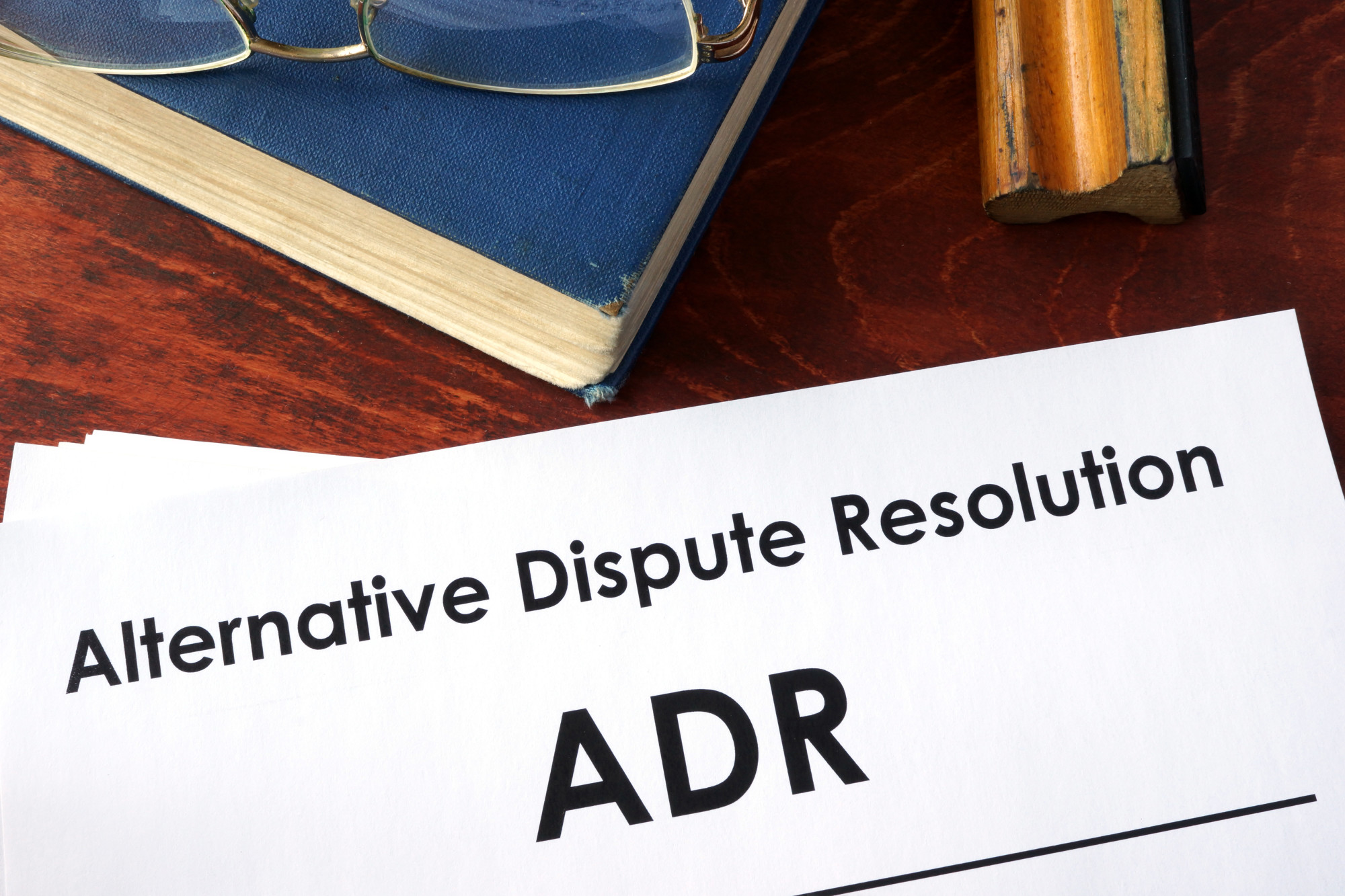
As speakers, we can be called on to talk with parties that are in conflict with each other. Although we may not be tasked with resolving their conflicts, we need to be aware that they are not seeing eye-to-eye and we need to tailor our speech to meet their unique needs. In order to get ready to deliver this type of speech, we need to make sure that we are aware of what options our audience may have for resolving the issues that we have been asked to talk to them about. One of the key tools that they have at their disposal is called Alternative Dispute Resolution and if we’re going to be speaking to them, then we need to understand what it really is.
According to the National Center for State Courts, less than two percent of civil case litigants file their lawsuit in court. More than 95 percent of these actions end with a pre-trial settlement. Most of these legal disputes are resolved by an optional forum called Alternative Dispute Resolution (ADR.)
If you’re wondering what is Alternative Dispute Resolution all about, then this article is for you! You can read more here about the different forms of ADR and their benefits.
What Is Alternative Dispute Resolution?
Alternative Dispute Resolution (ADR) refers to the many methods to settle legal disputes without going to trial. ADR procedures are less time consuming and expensive as trial procedures. These dispute resolution procedures can also create outcomes that may satisfy all parties involved.
ADR Formats
The most common formats for civil law ADR are arbitration, mediation, neutral evaluations and settlement conferences. Learn more here about each of these ADR models and whether they may or not be able to help with the many lawsuits that may arise.
Arbitration
In the arbitration process, an impartial person called the “arbitrator” reviews your case . Arbitrators review the evidence and listen to each side’s legal arguments. Based on these submitted items, the arbitrator determines the outcome.
Arbitration may be either “nonbinding” or “binding.” Nonbinding arbitration means that either party is allowed to request a trial if they don’t agree with the arbitrator’s final decision. Binding arbitration refers to the process where both parties agree to forgo a trial and accept the arbitrator’s final decision.
Appropriate Cases for Arbitration
Arbitration is appropriate for disputes where both parties want an outside person to decide the outcome of their but want to avoid the expense and time for a trial. Arbitration is also affective for complex cases where the decision-maker needs to be a subject matter expert on the topic of the dispute.
Inappropriate Cases for Arbitration
If both sides want to keep their own control over how the case is resolved, this process may not be the best. Especially in binding arbitration, both sides can’t appeal the arbitrator’s final decision.
If a party in binding arbitration insists on a trial to gain a better outcome, they run the risk of receiving a harsher result. If that happens, they may have to pay penalties.
Mediation
During the mediation process, the neutral third person is called a “mediator.” Mediators help both sides of the dispute reach a resolution that mutually benefits all parties.
Mediators don’t issue a final decision. Their job is to help both parties communicate and settle the case by themselves. Mediation allows both parties to have direct control over the outcome of their case.
Appropriate Cases for Mediation
Mediation is very helpful when both sides have a relationship that they want to sustain. This ADR process is useful for disputes between neighbors, business partners or family members. Mediators can help when emotions are running high and help both sides communicate in a constructive and effective manner.
Inappropriate Cases for Mediation
Mediation won’t be effective unless both parties are willing to cooperate with each other. Mediation also won’t help if one side has considerable power over the other side. For example, mediation is not effective if one side has a history of victimization or abuse.
Neutral Evaluation
A neutral evaluation occurs when both sides have the chance to present their arguments to an impartial subject matter expert. These “evaluators” offer their professional opinion on the strengths or weaknesses of each side’s case. Evaluators can also share advice on how to settle the dispute.
An evaluator’s opinion is not final in the dispute. However, some parties will use the evaluator’s feedback as a starting point to negotiate a resolution.
Appropriate Cases for a Neutral Evaluation
Neutral evaluations are appropriate for cases when there are technical matters being challenged. Subject matter experts can help settle these complex issues and decide on appropriate damage awards.
Inappropriate Cases for a Neutral Evaluation
Neutral evaluations may not help if there are substantial emotional or personal barriers to resolving the case. Neutral evaluations are based solely on the technical subject matter of the disputes at hand, not the human reactions tied to them.
Benefits of ADR
ADR comes with many benefits, depending on the method of conflict resolution that you decide to use and the circumstances of your case. Some of these benefits include:
Saves Money and Time
Cases are decided earlier with ADR. Lawsuits headed for trial will take over a year or more to complete. ADR also opens the door to cost savings from court costs, expert witness fees and other expenses you would have spent on a trial.
More Control Over the Outcome
ADR allows both sides to assume a bigger role in shaping the process and outcome. With ADR opportunities, parties have more time to directly converse with each other and share their side of the story. ADR also allows parties to create resolutions that fix their own unique situations.
Maintain Relationships
ADR is a less hostile or adversarial way to find a resolution. Mediators are trained to facilitate dialogue between parties to identify everyone’s needs or own unique point of view. Litigants in a personal relationship can benefit from this forum to preserve their connection.
Next Steps
If you find yourself entangled in a civil lawsuit, your first stop should be your local trial court system. Their civil law department staff can advise you on their available ADR programs and advise you on what is alternative dispute resolution all about. Ask them how these various methods can bring an affordable and speedy end to your case.
If your dispute is appropriate for mediation, be prepared to effectively communicate your desires and needs. The other person across the mediation table could very well be someone you love. Now is the time to find a resolution that meets both of your needs.
For more helpful advice on how to effectively communicate through the legal process, be sure to keep browsing our website. Your communication success could ultimately decide the fate of your case.

